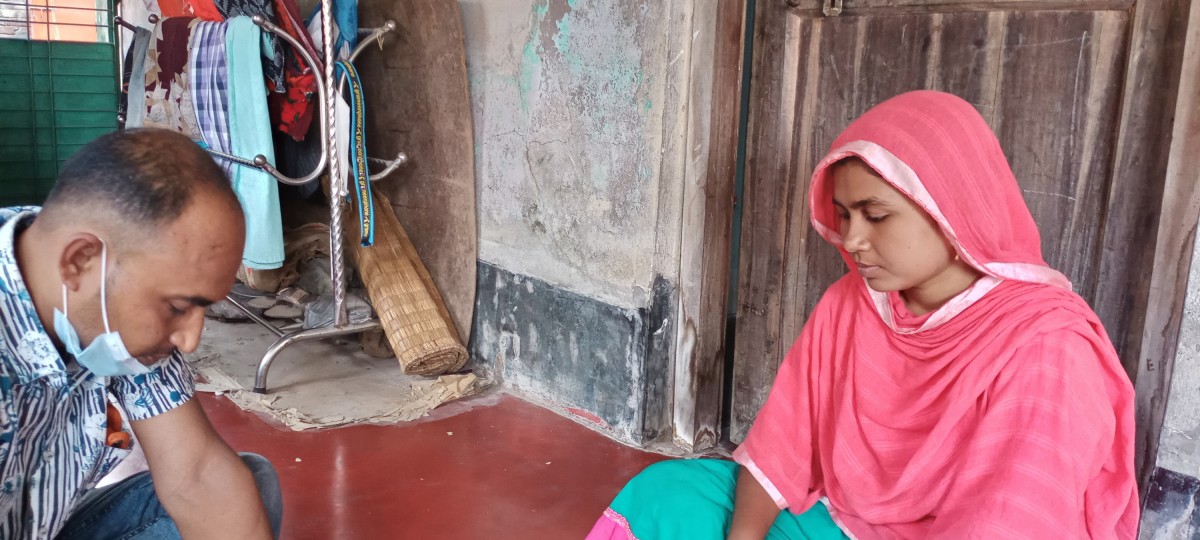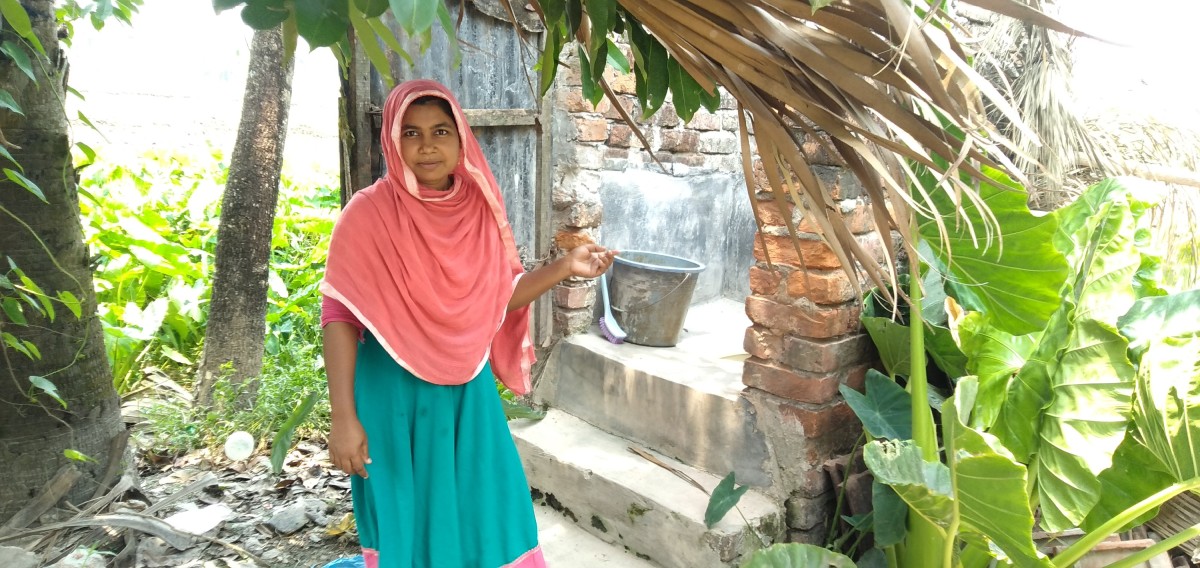When the water remains high: story of a Bangladeshi woman dealing with the effects of climate change
Written by SK. Takdirul Awal, MEL Officer, Uttaran and Samir Kumar Paul, MEL and Communication Assistant, Simavi
Bangladesh is one of the most vulnerable nations when it comes to the adverse effects of climate change. People in Bangladesh's south-west coastal region have been suffering from severe waterlogging due to climate change over the past two decades. Sabiha Begum, one of these people, took on a challenge and now successfully safeguards her toilet from waterlogging caused by climate change.
Climate change and Waterlogging: How they are connected?
Climate change is triggering waterlogging in various ways such as:
- Untimely flood: extremer weather patterns, resulting from long-term global climate change, increase the likelihood of flooding. Changes in land cover, such as the elimination of vegetation, and climate change raise the danger of flooding. Extreme floods can be caused by intense precipitation, longer duration, or repeated precipitation resulting in waterlogging
- Irregular precipitation: as the earth's temperature rises, more water evaporates, which increases the amount of water vapor in the air and makes it rain more often, harder, and for longer periods of time and this phenomenon is also responsible for waterlogging.
- Frequency of cyclones: devastating and frequent cyclones are one of the causes of waterlogging in coastal areas of Bangladesh. Moreover, storm surges during cyclones easily break the low-lying land and submerge the inland area which creates a waterlogging situation . A large portion of Baddipur Colony in Satkhira District of Bangladesh usually goes under water during the monsoon due to the poor drainage.

Effects of waterlogging on the community
Sabiha Begum lives in the lowest land under the municipality beside the river Betna. Due to its low land, waterlogging is a major problem here. During the waterlogging situation, houses, toilets, water sources remain covered by the water two and a half feet. Dirty garbage and germs of several waterborne diseases float around the area.
The magnitude of this waterlogging is so high in this region that even after the waterlogging period gets over, people suffer from the post-effects. Every year, people of this community have to carry huge economic damage to repair houses, toilets and other infrastructures. As this is one of the neglected communities in the region and people are living in poverty, it becomes burdensome to carry the cost for them. The waterlogging happens from July till January. Every year since 2011. Till now, no sustainable initiative was taken by the municipality. Or any other non-government stakeholders to solve this.
Seeing no solution, Sabiha decided to take on a challenge to safeguard her toilet from waterlogging.
Mother Group Meetings inspire the use of safe water
In this ongoing situation, Sabiha got an idea from a mother group meeting organised by WASH SDG WAI Sub-programme. The mother group consists of 25 mothers from the community. They meet up every three months for group discussions on various Water, Sanitation and Hygiene (WASH) issues. After learning about the benefits of drinking and using safe water, Sabiha visited her neighbours and shared her knowledge, together with other women. People were in wrong practice on WASH issues; as a result, the overall environment was contaminated with harmful germs, and had to spend extra money for treatment purposes. Previously women were involved not with this type of gathering and social activity, which is a barrier to upgrade the overall quality of people’s lives, but with mother group meetings, the scenario has changed.
It was hard to inform people on the use of clean water and sanitation before. Causing the environment to be contaminated and people getting ill. But this changed with the social gathering of women in the mother group meetings. They were able to reach the people in the community and upgrade the overall quality of life of their fellow community members.
“During the waterlogging period, our toilet pan went down underwater and dirty excreta floated there before, but now in the same situation toilet pan is safe from unwanted water and we can use it in a normal situation because of installing toilet base on 3 feet height. After the waterlogging period, we really got a good sanitation facility in better condition than before”
Sabiha Begum, Member of Mother Group
How Sabiha Begum takes on a challenge to protect her family’s toilet from waterlogging
Not only did Sabiha learn about the use of safe water. The Mother Group Meeting also taught her about elevating her toilet. She learned to install the toilet base above 3 feet height from the land. This way waterlogging does not affect the toilet. Which will prevent spread of germs in the water sources and the overall community. She then shared this idea with family members and convinced them to build a new toilet 3 feet up from the land. Since raising the toilet wil protect the toilet which helps to get rid of any kind of waterborne diseases. Her family agreed that two of her brothers also helped to do the job in April 2021.
After seeing Sabiha’s post waterlogging sanitation condition, her neighbours got encouraged to replicate this initiative in their household. The mother group president and other members praised Sabiha for this initiative and created a team for neighbours’ households’ motivation activity to develop toilets like this.
Now, they are trying to encourage community people to take on the challenge t like Sabiha did and safeguard their toilets during waterlogging.

About WAI WASH SDG Sub-programme
The WASH SDG Programme is implemented by the WASH SDG Consortium that consists of SNV, WASH Alliance International, and Plan International. This programme is supported by the Dutch Ministry of Foreign Affairs. To accomplish sustainable change, the program interacts with local partners)
(The WAI WASH SDG Programme (WASH SDG Programme – WASH Alliance International (wash-alliance.org)) is a six-year effort that aims to enhance access to and utilization of safe drinking water, sanitation, and hygiene in seven African and Asian countries. Specific focus is given to gender and social inclusion, climate risk, and resilience within the program.

